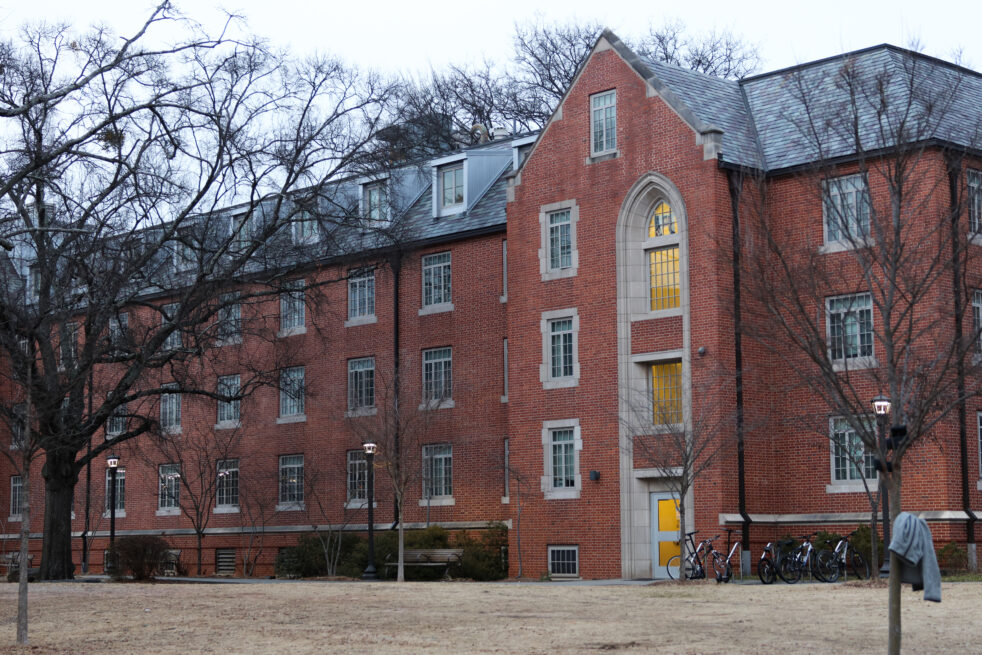Over 8,000 residents live in on-campus housing each semester, each one of them producing waste every day. Kate Curnow, the Programs and Operations Manager in the Housing Department at Tech, explained why waste management and sustainability programs are so important when dealing with an operation of this scale.
“The scale of us, of Housing, it’s so, so much. If we aren’t being thoughtful about wholesale diversion of our stuff, our waste, that is not very Georgia Tech. Tech cares about sustainability and progress and to us that goes hand in hand,” Curnow said.
The current system utilized by all on-campus residences has been around for as long as Curnow has been at Tech. It is a “single stream system, meaning everything goes into the same bin,” Curnow explained
She continued, elaborating on the single stream process — its function, implications and advantages.
“Back in the day, you had to sort your recycling and even the plastics by number, but these days we all put it in the same bin. There are some places, like at the Student Center, where you have the plastics and paper, so that is not single stream, but Housing is mostly single stream. We do have folks separate out glass because when that gets mixed with other recyclables it can mess up the other recycles so separating that out is really helpful,” Curnow said
Once a recycling bin has been filled, the waste continues along the path of the single stream. Curnow explained that, “for all the halls, there is a cluster of bins and dumpsters associated with each set of halls. There it is still a single stream with the glass separated.”
For those wondering why the waste is handled in a single stream, Curnow explained that it is “simply our scale, with 8,000 people and sometimes almost 9,000, it makes sense for us to have single streams and pipelines to take care of our waste because it is just a lot.”
Despite the streamlined process in place, recycling remains a challenge in residence halls across campus, on both East and West.
Curnow believes this is due to a gap in on-hand information and awareness.
“For most folks it’s still just an information barrier. They feel a barrier about what goes where, and compost is potentially new for some people and it feels weird to keep potentially rotting stuff for a minute. There’s a fear of doing it wrong, not fully partaking in it, the hesitation of am I doing it right,” Curnow said.
Curnow also pointed out that “rinsing out recyclables feels like a big hurdle for folks, but that’s part of what you should do with it,” and the struggle of “getting students to access recycling resources and lock in to that information and absorb it even though y’all want to be good about it.”
Curnow suggested that students can confront these challenges by using the ECGO app, which gives users real-time guidance on how to recycle. Curnow explained that the app allows users to upload photos of their recyclables and from there provides instructions on where the item goes and the nearest recycling location.
There are also eco-reps who work on sustainability programming within each residence hall, and Curnow encouraged students to participate and educate themselves on what the eco- reps are working on.
The innovative projects included the Green Goodbyes, which takes place at the end of each semester and allows residents to donate their items instead of throwing them away.
According to Curnow, the program was originally started by Malte Weiland, Senior Sustainability Project Manager, in his first year working at Tech.
Curnow explained how Weiland’s routine trip to a dumpster turned into a semesterly tradition for him.
“He went to Nave’s [North Avenue Apartments’] dumpster and it was a 20-foot-high mountain of trash, but a lot of it was really good reusable stuff.”
Instead of everything being dumped at a landfill, the Green Goodbyes program diverts reusable items away from the landfill and into the hands of students who will give it another life.
Pivoting to sustainable efforts to come, Curnow spoke on the intentional design of future residence halls.
“Sustainability is very much a part of that conversation,” Curnow explained. With additions like more bins in common spaces and accessible composting, there is hope that the new building can act as a model towards a more sustainable Tech as a whole.
